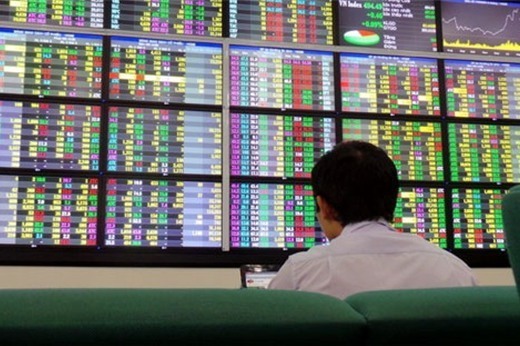The VN Index, Viet Nam’s benchmark stock index, grew 19.33 per cent in the first three months of this year, becoming the best-performing market in the world, followed by Egypt with 15.52 per cent growth and Brazil with 11.73 per cent.

The VN Index, Viet Nam’s benchmark stock index, grew 19.33 per cent in the first three months of this year, becoming the best-performing market in the world, followed by Egypt with 15.52 per cent growth and Brazil with 11.73 per cent.
The index ended March 31 at 1,174.46, up a staggering 200 points from the beginning of the year, which was the biggest gain worldwide.
Viet Nam’s stock market has been upbeat since the second half of last year but the upward momentum slowed down after March 23 when the index surpassed its March 2007 peak. Rising volatility on the global markets and fears of a trade war between the two biggest economies—the US and China—dampened investor confidence.
However, the local market still ended the first quarter strong, with optimistic medium and long-term forecasts put forward by securities companies, experts and investors.
The VN-Index, a capitalisation-weighted index of all the companies listed on the HCM Stock Exchange, closed at a 10-year high of 984.24 on the last working day of 2017, earning Viet Nam the nickname Asia’s “frontier market” with a 47 per cent gain for the year.
The gains of the VN-Index may extend, with the index forecast to reach 1,210 by the end of 2018, according to a survey of 10 strategists conducted by Bloomberg.
Besides the index’s growth, liquidity has also improved significantly, as its trading value soared more than 60 per cent from 2006 to VND5 trillion ($220 million) daily in 2017, and the figure has rocketed to VND9.6 trillion in early 2018.
The breakthrough in Viet Nam’s stock market is mainly attributed to rosy macro-economic fundamentals, positive business results among listed companies and high investor expectations for State divestment plans among many large State corporations.
According to the General Statistics Office, GDP growth recorded in the first quarter of the year was seen at 7.38 per cent, the best first-quarter performance in the last 10 years, backed by strong growth in agriculture, industrial and construction sectors.
Lending interest rates also remained stable, supporting businesses as well as stimulating capital flow into the stock market.
March and April are the peak periods for shareholders’ meeting season.
Listed companies’ Q1 earnings announcements, dividend payment plans and 2018 business plans will be announced and become short-term supporting information for investors, influencing the market performance.
Chairing the meeting of the Steering Committee for Enterprise Innovation and Development in early February, Deputy Prime Minister Vuong Dinh Hue said that 2018 would be the peak year for equitisation of State-owned enterprises (SOEs) and State capital divestment.
In the first quarter of this year, four enterprises have offered their initial public offerings (IPO), including Viet Nam Rubber Corporation, PetroVietnam Oil Corporation, Binh Son Refining and Petrochemical Company and PetroVietnam Power Corporation – the four largest SOEs by capitalisation among the 69 SOEs listed in the equitisation plan of 2017.
Another major push was caused by the strong inflows of foreign capital. Foreign traders were responsible for net buying values of nearly VND10 trillion in the first quarter, after total net purchases of VND28 trillion in Viet Nam’s stock market in 2017. — VNS





